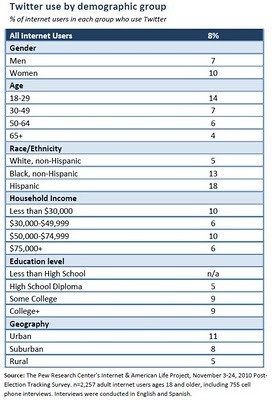Matthew Yglesias's Blog, page 2474
December 10, 2010
Looking Forward to a Laundry List

I think William Galston is absolutely correct to emphasize that after whatever tax deal does or doesn't get done during the lame duck session, there's an urgent need to get out of the back and forth over "Bush tax cuts" and on to more fundamental reform of the tax code. But I think this tactical advice is mistaken:
This is one of many reasons why the 2011 State of the Union address may well be the most important speech of Obama's presidency. If he is able to chart a new course toward growth and fiscal sanity and back it with specifics–starting but not ending with tax reform–he will improve not only his own prospects, but the nation's as well. If he does not–if the speech devolves into the kind of routine laundry list that Winston Churchill once dubbed a "themeless pudding"–the chances of gridlock and drift will rise, and so will the prospects of a return to unified Republican governance in 2013.
It sounds silly to call for less presidential leadership, but I think the evidence suggests that what's needed here is actually a very vague and generic endorsement of the concept of tax reform plus some themeless pudding. Frances Lee's important book Beyond Ideology: Politics, Principles, and Partisanship in the U. S. Senate argues persuasively that what happens when a president tries to "lead" on an issue like this is that a dynamic of partisan polarization kicks in. What you really need to get tax reform is for some hard-working members of congress from both parties to take the initiative in hammering out a framework and building support on the Hill. If such a thing happens, the White House should of course try to play a constructive role. But jumping all over the issue and a creating a dynamic where tax reform becomes "a key priority for the Obama administration" that opportunists on the right want to kill for the sake of a political win would not be a constructive intervention.


The Institutional Feebleness of Moderate Republicanism
Via Steve Benen, a fascinating point from Jay Bookman—Republican politicians are much more conservative than the self-identified Republican electorate:
On other issues, the gap between Washington Republicans and GOP voters back home is less dramatic, but still significant. According to Gallup, 40 percent of Republicans opposed extending tax cuts for the wealthy or wanted the cuts ended across the board, for everybody. Yet Washington Republicans were unanimous in demanding the cuts for the wealthy be extended. Forty-three percent of Republicans, and 38 percent of conservative Republicans, supported extending unemployment benefits, but again that division of opinion was not reflected at all in Washington.
On Don't Ask, Don't Tell the gap is even bigger. What we're staring at here is one of the major imbalances in American politics, the incredible institutional weakness of moderate conservative politics.
There's just no equivalent in Washington of an organization like the DLC/PPI or Third Way or the network of former Democratic members of congress who work for business associations and who together provide an institutional platform for Democratic moderation. Consequently, even if large minorities of the GOP base might favor compromise on this or that issue, there's no institutional context through which that diversity of opinions might come to be represented as a diversity of political stances. Interestingly, this worked differently when there was an actual Republican presidential administration in office. In that context, the Bush administration itself served as an institutional platform for moderation. When Bush wanted to take a hard-right stance (as he did on Iraq, tax cuts for the rich, lax regulation, etc.) he was able to command unanimous support for his position. But when Bush wanted to tack to the center on immigration or with a giant expansion of Medicare, he was able to bring non-trivial numbers of his co-partisans along with him. With Bush out of office, though, the party's drifted to the right on basically everything.
On a conventional view of American politics this should be electorally toxic for the GOP. But the conventional view massively overstates the role of ideology in determining electoral outcomes. Conservative fundamentalism is a drag on GOP election prospects (see, e.g., the Delaware and Nevada Senate races) but the extent of the drag is relatively minor.


Who Tweets?
Kay Steiger brings us the demographics of twitter:

Interestingly, this is not your classic "early adopter" demographic heavily weighted toward white dudes. Instead, women and non-whites seem disproportionately interested. Personally, I love Twitter so for these purposes will classify myself as Hispanic in order to better fit the model.


The Political Economy of Affordable Care Act Repeal

I think we should view this story about John Boehner's new lobbyist-turned-political-director to be a good map to what will and will not be serious issues in efforts to repeal the Affordable Care Act:
Brett Loper, senior executive vice president at the Advanced Medical Technology Association, was deeply involved in the health care debate and fought against the fees Democrats ultimately assessed the industry to help pay for reform.
"I'm very pleased Brett will be joining our team," Boehner said in a statement. "There are few people who are better equipped to help our new majority change the way the House works and advance a new governing agenda that reflects the will of the people we serve."
Ask yourself what the Advanced Medical Technology Association likes and doesn't like about the Affordable Care Act. Do they want to see subsidies for low-income people to purchase health insurance go away? Of course not, subsidized insurance means more insurance means more treatment means more purchases of AMTA. But how about the pay-fors? Well, as the article says AMTA fought against some of the taxes that are used to pay for the bill. Presumably AMTA also doesn't like the idea of reducing wasteful Medicare spending. Conversely if you think about what liberals in Congress really care about, there's much more concern with preserving low-income families' access to health care than there is in preserving specific parts of the pay-for package.
During the actual negotiations over the bill, the White House—led by Peter Orszag at OMB—was fairly fanatical about making sure the increased health spending implied by expanding coverage was counterbalanced by cost control measures. But Orszag's not at OMB anymore, he's going to be a Vice President at Citigroup.


Better Explanations Needed
Ed Barnes' story on the havok being wreaked by Stuxnet on the Iranian nuclear program is pretty interesting, but then there's this: "Examination of the worm shows it was a cybermissile designed to penetrate advanced security systems."
Maybe it's just me, but I find that description totally unenlightening. And yet the apparent success of this tactic indicates to me that we're probably going to hear more about this kind of thing. Until recently, my impression was that talk of "cyberwar" and the like was just so much hot air. But Stuxnet seems to be having a significant impact on a major-league global security issue and if that can happen once I doubt it'll happen only once.


Giving Money to Poor People

(cc photo by LateNightTaskForce)
The concept behind the Giving Pledge, namely that rich people should not only give money to charity but should act to increase the level of social pressure on other rich people to do so as well, seems entirely laudable. But insofar as the current era of massive inequality is more-or-less destined to lead to an era of massive charitable giveaways I do think it's worth trying to subject the whole enterprise to some scrutiny.
For starters, obviously the best thing you can do with your billions is give it to the Center for American Progress Action Fund, and especially the blogging division. Alternatively, one could just give me millions of dollars to run a brand new Center for Barber Freedom and Tall Buildings.
Alternatively, one under-discussed possibility is for a guy who has a lot of money and a desire to help poor people to just identify some poor people and give them some money. It sounds banal when you say it, but one of the main obstacles to people being less poor is that they don't have enough money. If you give them money, they'll have more of it. Will this be optimal in all cases? Of course not. But in the vast majority of cases, you'll do some good. It's tempting to believe that you're on the merge of some major conceptual breakthrough in the field of philanthropy. But give some consideration to the possibility that you're not. Perhaps if you have a special talent for anything, it's a talent for making money. It's not very hard to identify some people who might need money more than you do. Maybe you should just give them some, and then go back to making money.


Patent Madness

As Nathan Myhrvold unleashes the mother of all patent-troll battles Kevin Drum surveys the overall madness:
[I]n general, it's been a massive abdication of responsibility for Congress not to spend some time reforming patent law. Far too many patents are granted, they're granted for inventions that are far too trivial and far too narrow, the patent office is far too poorly staffed to deal with them properly, and patent trolls like Myhrvold are allowed to sit back and do nothing for years and then suddenly start harassing corporations long after they've built up major businesses around supposedly infringing patents. It's a disgrace, and it's bad for innovation and bad for business.
Yes. This is a badly under-discussed policy fiasco in the United States. The idea of patent law is to spur innovation by ensuring adequate rewards for inventors, which is fine. But when the system is allowed to run amok and essentially be controlled by a patent bar with an interest in maximizing the overall quantity of litigation you get a disaster that does more to stymie innovation than to reward it. I was interested to learn a couple of days ago from Markus Beckedahl that in Europe they quite rightly simply refuse to accept the concept of a "software patent" altogether.
At any rate, this is not only an important issue, but since it's not a particularly "ideological" or "partisan" one in a classic sense, it's definitely something well-meaning members of the 112th Congress should try to take a look at. The prospects for major reform of anything in the US system are never very good, but this isn't a topic on which partisan gridlock as such would be an obstacle to progress.


December 9, 2010
Endgame
Making everything all right:
— Tax deal in one graph.
— PG County's new executive seems to be on the right track.
— Nonviolent resistance in Palestine.
— Can European banks roll over their debts?
— Defense contractors prepare for political battle.
Bloc Party vs Ladyhawke, "Back in Kreuzberg" is definitely my favorite mashup named after a Berlin neighborhood.


CAP Social Security Proposal

This is a fraught subject that's worthy of a more detailed post than I have the time to do while traveling, but I thought I should mention that today CAP is releasing a Social Security reform proposal by my colleague Christian Weller. The goals of the plan are twofold. One is to make Social Security actuarially sound on a long-term basis through tax increases and benefit cuts. The other is to address adequacy issues with the existing Social Security system by offering higher benefits to the poorest retirees, to people over the age of 85, and to many divorced women, and to some beneficiaries of the survivorship benefits system.
Obviously, the whole idea of tinkering with Social Security at all is very controversial in progressive circles. But I think if you look at this plan you'll see that it's much more progressive than the leading alternatives and would, if implemented, do a great deal to improve the plight of the most vulnerable classes of elderly Americans. There's been a lot of throwing around of the term "catfood commission" in the blogosphere but the dual reality is that the current system leaves a substantial fraction of the elderly below the poverty line. That's something that could be changed, and that I think it's essential to seize the opportunity to try to change it if the political system really does pivot toward altering the program.


DADT and Filibuster Reform
Whatever else you may say about today's Don't Ask Don't Tell fiasco, just make sure to add it to your list of "good things that would have passed already were it not for the filibuster." The list of bad legislative ideas ideas in recent years that had more than 50 but fewer than 60 is . . . what?


Matthew Yglesias's Blog
- Matthew Yglesias's profile
- 72 followers



